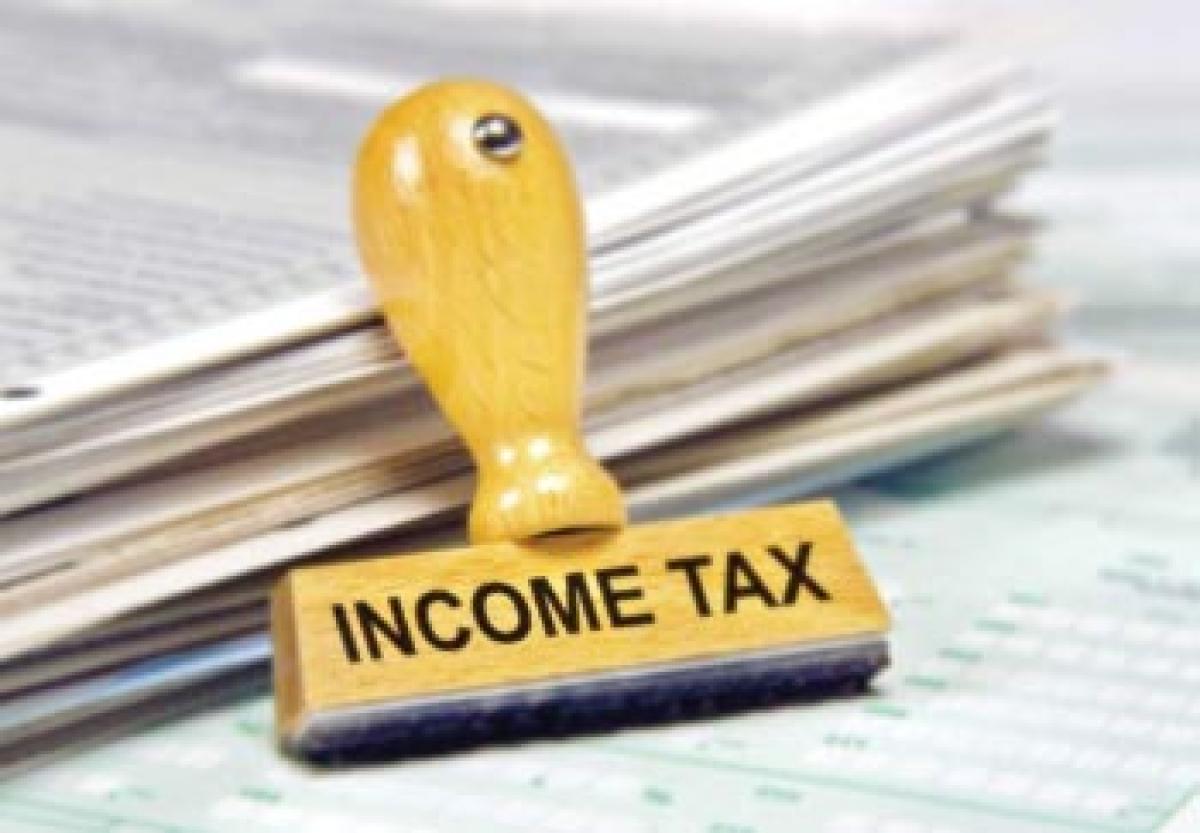Live
- Nizamabad MP Dharmapuri Arvind and Jagtial MLA Dr. Sanjay Kumar Meet CM Revanth Reddy
- Hyderabad CP CV Anand Issues Stern Warning to Bouncers
- MP Laxman Criticizes Police Conduct, Calls for Support for Victims' Families
- Fire Breaks Out in Kachiguda-Chennai Egmore Express, Passengers Evacuated Safely
- CM Revanth Reddy Condemns Attacks on Film Personalities' Homes, Calls for Strict Action
- Victory Venkatesh and Nandamuri Balakrishna to Set Screens on Fire with Unstoppable Season 4
- Over 71.81 crore Ayushman Bharat Health Account numbers generated: Centre
- In special gesture, Kuwait's Prime Minister sees-off PM Modi at airport after conclusion of historic visit
- Veer crowned PGTI Ranking champion, Shaurya wins emerging player honour
- Sr National Badminton: Unseeded Rounak Chauhan, Adarshini Shri reach singles semis
Just In

The month of March usually brings a lot of anxiety for tax assessees every year. However, the confusion is relatively more for people who are into their first year of employment. More often than not, they are unsure about the process of filling tax memos received from the finance team.
The month of March usually brings a lot of anxiety for tax assessees every year. However, the confusion is relatively more for people who are into their first year of employment. More often than not, they are unsure about the process of filling tax memos received from the finance team.
For some employees, the word income tax manifests initially as an errand which later snowballs into a hassle if not dealt with at the earliest. To make the income tax saving process easier, here are some basic guidelines that could be followed by a first time income tax assessee to avoid facing any last minute surprise salary deductions.
Responding to tax memos
The very first step to saving your hard-earned money would be to not ignore the tax memos received from your finance team. It is always advisable to read through the memos carefully before filling in the required details and submitting them on time to ensure minimum tax deductions.
Applying for a PAN card
A very crucial step for first year assessees is to apply for a Permanent Account Number (PAN) card. It is mandatory for every employee to own a PAN card, irrespective of whether one falls under a tax slab or not. The absence of a PAN card makes one liable for a mandatory 20 per cent tax deduction. Also, gone are the days when applying for a PAN card was a tedious process. Now, one can simply log into www.utiitsl.com or www.tin.tin.nsdl.com and apply for a PAN card online.
Tax rates
A basic understanding of the tax rates applicable for a financial year (April 1 – March 31) will help in tax saving right from the very start and avoiding year-end hassles in hurried investments. As per the current tax slab, an employee is liable to pay tax only when the annual income for a year exceeds Rs 2.5 lakhs for the current financial year.
Salary structure
It is extremely important for an employee to check his/her salary structure to ascertain whether the employer has included flexible allowances which convert daily expenses into tax-saving options such as the internet allowance, leave travel allowance, and the conveyance allowance. One of the main components in the salary structure includes the House Rent Allowance (HRA).
Most youngsters work in locations away from home and opt for rented accommodations for which a monthly rent is charged by the landlord. The landlord, in turn, is liable to give a receipt of the rent amount received on a monthly basis. First year assessees should be aware that the HRA is included in the pay structure and is a taxable component. Hence, rent receipts received from the landlord should be submitted when filing necessary documents for income tax savings.
Tax saving investments
It is recommended for first year income tax assessees to explore risk-free tax saving investment opportunities such as Life Insurance Corporation (LIC) policies, National Savings Certificates (NSC), Public Provident Fund (PPF), House Loan Principal, etc. They can also choose to invest in market risk investments such the Systematic Investment Plan (SIP), Equity Linked Savings Scheme (ELSS), and mutual funds.
It is important to note that tax free investments always include a minimum lock in period. These are some of the steps which could be followed by a first year income tax assessee for a hassle-free tax saving benefit. For more information, it is recommended to go through the Income Tax Slab Rate and plan well ahead in advance. (The writer is Head of Finance at CDK Global-India)

© 2024 Hyderabad Media House Limited/The Hans India. All rights reserved. Powered by hocalwire.com







